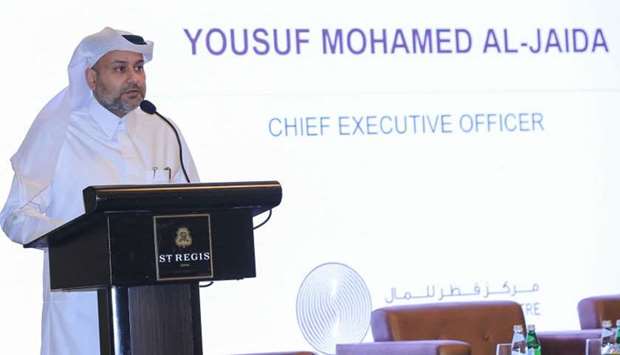Doha's fast adoption of technologies has not only helped enhance growth prospects across sectors but also offers immense potential for digitalisation, which is a key to economic diversification, according to a top official of the Qatar Finance Center (QFC).
“Qatar is continuing to adopt world-class technologies to drive sustainable growth across different sectors of the economy. This offers significant opportunities for businesses given that digitalisation of the local economy remains a key component of economic diversification, in line with the Qatar National Vision 2030,” QFC Authority chief executive Yousuf Mohamed al-Jaida told a technology seminar.
The event reflects the importance of the technology sector in Qatar’s economy, which was estimated to be $3.9bn in 2017, and is expected to grow by an impressive 2.3% per annum to reach $4.4bn by 2021.
The event included panel discussions and sessions on pertinent topics such as cyber security and cyber resilience, as well as digital strategy and advanced analytics. These engaging discussions were led by QFC-licensed firms KPMG, Protiviti member firm, BCT and Global Risk Advisors.
"Our goal for hosting the Fast, Forward Tech event was to ensure that we continue to foster and nurture the firms registered with us, and to provide these businesses with a supporting environment that is conducive to their continued growth,” al-Jaida said.
The QFC is an onshore jurisdiction, allowing companies to operate in and from Qatar within the QFC legal and tax environment. The QFC endeavours to promote Qatar as an attractive business destination. Companies that wish to establish a business in the QFC are guided throughout by a dedicated QFC relationship manager who assists in the process of obtaining a license and offers support in matters related to operating a business in Qatar.
The QFC firms enjoy competitive benefits, such as working within a legal environment based on English common law, the right to trade in any currency, up to 100% foreign ownership, 100% repatriation of profits, 10% corporate tax on locally sourced profits, and an extensive double tax treaty agreement network with more than 60 countries.

